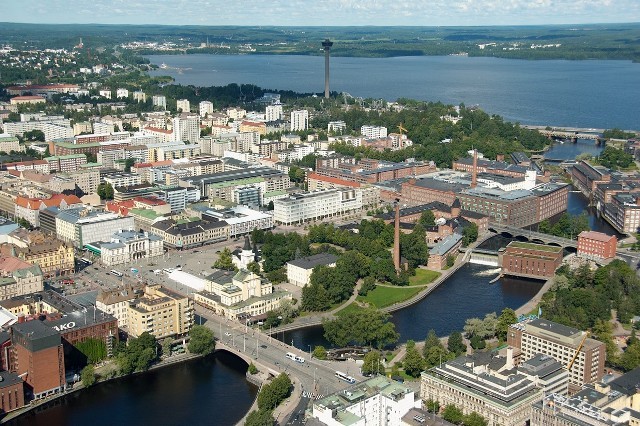|
Tampere shared first place with the joint project of the Swedish county of Västernorrland and Snowpower AB. The Swedes' innovative approach led to the revival of an old practice: the world's biggest snow cooling system was constructed in the city of Sundsvall for the local hospital. Buried under woodchips in winter, the snow will help the hospital save as much as 90% on its energy consumption in summer. It will also mean that the hospital can do away with the use of cooling agents in its cooling system. Moreover, the system puts the snow collected in winter to good use: the melt water is channelled into the hospital's cooling system. The 'Solutions 2011' conference not only provided food for thought in terms of successful solutions, but also underscored the fact that around 80% of the world's energy is consumed in cities - clearly indicating where damnation or salvation will come from. Somewhat surprising was the conclusion of one study which suggested that 80% of all efforts to live more sustainably are focussed on just 20% of the value chain. Much more attention has been turned to production than to consumers, the sales network and transport. Discussions held outside of the conference rooms confirmed that people are often aware of the solutions that are available, but lack the means to implement them. Overview compiled by Madis Tilga, adviser on climate and energy issues with the Nordic Council of Ministers' Office in Estonia. Also attending the conference was Merle Kuusk, adviser on environmental issues with the same office. |
||
|
IMPORTANT LINKS: |
||
Economical cooling system and comprehensive urban planning win Nordic Climate awards
|
The business and education sectors in Tampere were also involved in the creation of the solution. In addition to the city itself, funding for the launch of the project was provided by the Finnish Innovation Fund (SITRA). A conference held in Turku in Finland from 31 January to 2 February focussed on searching for ways of dealing with climate change. Its packed and very diverse programme included themed workshops involving participants from 18 countries and an awards ceremony to recognise those who had come up with the best climate solutions. One of the members of the jury was a representative of the Association of Estonian Cities. |

 The city of Tampere in Finland won the backing of an international jury in February for its ECO2 project, which represents a comprehensive urban planning concept that is easy to understand. The key to the implementation of the project is the involvement of the city's mayor and politicians and the development of a mechanism for city-wide coordination.
The city of Tampere in Finland won the backing of an international jury in February for its ECO2 project, which represents a comprehensive urban planning concept that is easy to understand. The key to the implementation of the project is the involvement of the city's mayor and politicians and the development of a mechanism for city-wide coordination.